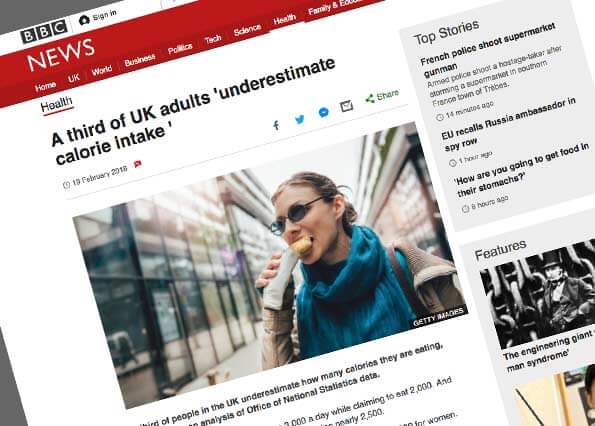You might have seen an article in the paper last month claiming that a third of UK adults underestimate their calorie intake.
Is this true, and is it a problem?
Well, to answer this question, I did a bit of digging. The article was based on a report by the Office for National Statistics (the ONS), so I contacted them for more information.
It turns out that it’s not one third of adults who are underestimating their calorie intake. It’s 98% of us.
To put this in perspective, this means for every 50 people out there counting their calories, 49 are eating more calories than they think they are.
According to the ONS, the average amount that people are underestimating their calorie intake by is about 1000 calories. This means that if you think you ate 2000 calories today, most likely you ate around 3000 calories.
This is not a new finding. Under-reporting of calories crops up again and again.
Why the error?
It’s easy to forget foods when tracking calories. Sweet drinks, alcohol, cooking oil, butter and sauces are all highly calorific and easy to forget. Little snacks and nibbles really can add up. Even a medium latte contains around 150 calories.
Eating out also causes problems. Even if you weighed out the pasta you got with your meal, you’d probably be missing the tablespoon of oil that was drizzled on before serving.
So what can you do?
If you like snacking, try to have healthy low calorie foods to hand. That way if you forget about them, it’s less of an issue. Snacks like low fat yoghurt and fresh fruit. Avoid nuts, dried fruit and cheese when snacking, as these are very calorie dense.
Try to avoid cooking food in oil or butter, or if you do, make sure youÂ’re honest with yourself about how much youÂ’ve added.
Avoid the weekend splurge. A big meal on the weekend with dessert and drinks can easily contain more than 2000 calories instead of the usual 500-700 calorie meals.  1500 extra calories once a week pushes up your daily average by over 200 calories.










